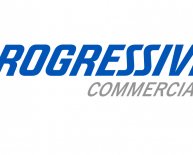
Progressive auto Insurance locations
To mitigate the risk of loss, people purchase insurance policies from a company. When buying a policy, the person agrees to pay a premium, which is small, regular payment based on the losses that may occur. If the insurance provider determines there is a greater chance of risk as compared to the average policy, the premium is usually higher. Premiums are often paid monthly, and can add up over time up to be greater than the expense of replacing the insured item.
Many types of insurance only cover a certain amount of risk on an item. The amount the policyholder must pay before an insurance policy begins covering an expense is called the deductible. In the event of damage or loss to whatever the policy covers, the policyholder is responsible for the deductible no matter what. If the cost of damage or loss is less than the deductible amount, the insurance company does not pay anything. If the cost is greater than the deductible, the policyholder only pays the deductible, while the insurance pays the rest. Generally, the deductible amount is related to your premium, with a higher deductible usually requiring a lower premium, and vice-versa.
Insurance Agents
Selecting the right insurance involves careful research and evaluating many different options for coverage. This is why many people use an insurance agent to assist with making the right choice depending on their needs and financial situation. Agents often interview potential or current clients to get an idea of which insurance policies would benefit them the most. Based on their needs and individual risk, agents can often give potential customers a quote, which serves as a cost estimate for a specific policy. This is only a rough idea of what the policy will cost, because evaluating the risk associated with a given customer can take time. Insurance companies often compile an insurance score to quantify the risk an individual poses and calculate premiums accordingly. Credit scores play a major role in insurance scores, but past insurance-claim history is also taken into account.
While agents often specialize in a particular category of insurance, some sell several different types of insurance. Agents can work for a larger insurance company or operate independently, selling policies from several different insurers.
Insurance Products
Almost anything of value can be insured to protect against loss due to a variety of circumstances. Insurance policies are very specific in the items they protect and in what event the policy holders will be reimbursed. Some of the most common insurance policies cover things we all use.
Automotive Insurance
Millions of Americans drive a car to get from place to place each day, so it makes sense that auto insurance is one of the most commonly used types. In most states, the law requires drivers to maintain an active insurance policy on any car, up to a certain amount. Most car owners are required at minimum to purchase liability insurance, which protects against damage for which the policyholder is at fault. Liability insurance covers damage to property as well as any injuries sustained in an accident. It's important to note liability insurance only covers damage or injuries of others, not the policyholder themselves. In addition to liability insurance, car owners can also purchase coverage for their own vehicle and medical expenses in the event of an accident. For this purpose, liability, vehicle and medical coverage are often packaged together in a single policy.
Insurance can also be purchased for other vehicles, like motorcycles, ATVs, boats or RVs, and generally functions similarly to car insurance. Policies for alternative vehicles may have higher premiums if they are considered more dangerous, or might include other coverage options specific to the vehicle. Many companies that provide auto insurance will also offer coverage for motorcycles, ATVs, boats and RVs.
Homeowners Insurance
Your home, condo or apartment is probably the most valuable thing you own or otherwise pay for, so it makes sense to get it insured. Homeowners insurance is important not just for the security of the house itself, but for its ability to cover possessions inside the home as well. Many mortgage lenders also require an active home insurance policy.
Like auto insurance, homeowners insurance is typically bundled together with policies covering many different items or categories of items. The primary coverage type is for the dwelling, insuring the house itself and all structures attached to it. Policies may also cover property within the home, with premiums varying depending on the value of all assets. Personal liability may also be included for damage or injuries sustained on your property that you are responsible for, much like auto insurance.
Property insurance also may cover certain major events outside of your control. These are known as perils, and may include fire, flooding, natural disasters and other catastrophic events. You may want to purchase insurance against one or more of these perils if you live in a high-risk area. Flood insurance is an exception, however, and can be purchased through the government-sponsored National Flood Insurance Program. Your lender may require this if you live in a flood-prone area.
Health Insurance
To help pay for medical expenses, many people rely on their health insurance. With the passing of the Affordable Care Act, almost every American is required to enroll in a health care plan, or they face a penalty. Health insurance works similarly to other forms of insurance, although it is probably used to cover expenses more often, since car accidents and home damage are relatively rare compared to doctor visits and the need for medicine. Health insurance also operates on a premium-deductible model, and policyholders can choose what level of coverage works best for their lifestyle. For example, if you visit doctors very infrequently, you may consider a plan with a low premium and a higher deductible. On the other hand, people who require regular medical care may wish to pay a higher premium in exchange for more coverage from their deductible. Dental and vision care are sold as separate plans and are not required by law.
Life Insurance
When someone dies unexpectedly or is injured severely enough to be unable to work, it can be a financial disaster for their family or loved ones. Many people choose to purchase a life insurance policy to support their family in the event their regular income is suddenly lost. Life insurance comes in two basic types: term and universal. With a term life insurance plan, you pay a premium for a predetermined amount of time, usually 10 years or more. If you die at any point in that timeframe, your family receives a death benefit. If you're still around when the term is over, the coverage is canceled and you receive nothing. Universal life covers your entire life, and usually delivers a minimum benefit at death.

















